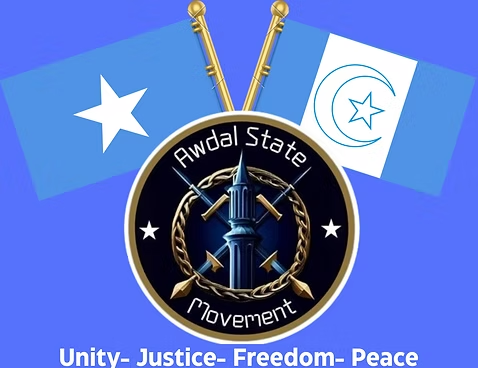Introduction
The consideration of breaking up Somalia into separate entities is a contentious issue that raises significant legal and ethical questions. Somalia is a predominantly mono-ethnic society, and the implications of such fragmentation not only contravene the principles of international law but also perpetuate historical injustices. This report argues against the breakup of Somalia by examining the historical context of colonialism, the legal principles outlined in the United Nations Charter, and the socio-political ramifications of division.
A- Historical Context: Colonial Legacies and Injustices
1. Colonial Partitioning of Somalia: The modern history of Somalia has been heavily influenced by colonial powers, particularly Britain and Italy, which partitioned the Somali territories in the late 19th century. The 1947 and 1954 decisions to cede the Ogaden region to Ethiopia and the Northern Frontier District (NFD) to Kenya were significant injustices that disregarded the rights of the Somali people. These territories were predominantly inhabited by ethnic Somalis, yet their transfer was carried out without the consent of the Somali populace, undermining their right to self-determination (Lewis, 2002).
2. The Concept of Somaliland:
The term “Somaliland” was a colonial construct used by European powers to create administrative divisions within Somalia. This division served the purpose of facilitating control and governance by creating artificial boundaries that did not reflect the cultural and social realities of the Somali people. The historical context reveals a pattern of exploitation and manipulation that continues to affect the Somali people today (Menkhaus, 2007).
3. The Role of External Powers:
The involvement of the United States and other Western nations in supporting the territorial transfers in the mid-20th century highlights the neo-colonial dynamics at play. These actions were motivated by geopolitical interests rather than the well-being of the Somali people, leading to a legacy of division and conflict that persists today (Kapteijns, 2013).
B- Legal Framework: The United Nations Charter
1. Sovereignty and Territorial Integrity:
The United Nations Charter emphasizes the respect for the sovereignty and territorial integrity of states. Article 2(4) explicitly prohibits the threat or use of force against the territorial integrity or political independence of any state. The proposal to break up Somalia fundamentally violates this principle, as it threatens the territorial cohesion of a recognized state and undermines its sovereignty (United Nations, 1945).
2. Self-Determination versus Fragmentation:
While the principle of self-determination is enshrined in international law, it must be exercised in a manner that respects the territorial integrity of existing states. The UN Declaration on the Right to Development asserts that people have the right to participate in and benefit from development in their own societies. Fragmenting Somalia would not only contravene this principle but also risk exacerbating ethnic tensions and conflicts within the region (United Nations, 1986).
3. Precedents and Implications:
The international community has established precedents for upholding the integrity of states in similar contexts. The cases of Kosovo and South Sudan illustrate the complexities surrounding self-determination and statehood. However, the recognition of new states must be carried out in a manner that does not destabilize neighbouring regions or violate existing international laws (Burg, 2010).
C- Socio-Political Ramifications of Division
1. Potential for Increased Conflict: The breakup of Somalia could lead to renewed conflict among various factions, as power struggles over territory and resources intensify. The Somali civil war, which has already caused immense suffering, could be exacerbated by division, leading to further instability in the Horn of Africa (Menkhaus, 2014).
2. Erosion of National Identity:
Somalia’s identity as a mono-ethnic society is a source of strength and cohesion. Proposals for division threaten to erode this identity, fostering fragmentation and disunity among the Somali people. The historical injustices faced by Somalis due to colonial actions must be acknowledged and addressed rather than perpetuated through further division (Lewis, 2002).
3. Neo-Colonial Dynamics:
The advocacy for the fragmentation of Somalia can be viewed as a continuation of neo-colonial practices, where external powers seek to manipulate the political landscape of sovereign nations for their interests. This undermines the agency of the Somali people and perpetuates a cycle of dependency and exploitation, reminiscent of the colonial era (Kapteijns, 2013).
Conclusion
The proposal to break up Somalia is fraught with legal, ethical, and socio-political challenges. It contradicts the principles established by the United Nations Charter and reflects a troubling legacy of colonialism and external manipulation. Rather than pursuing fragmentation, the international community should support initiatives that promote unity, sovereignty, and self-determination within the context of a cohesive Somali nation. A commitment to addressing historical injustices and fostering peace is essential for the future stability and prosperity of Somalia.
References-
Burg, S. (2010). The Kosovo and South Sudan Cases: A Comparative Analysis. International Journal of Politics, Culture, and Society, 23(3), 187-205.- Kapteijns, L. (2013). The Somali Conflict: A History of Dysfunctional Governance. African Studies Review, 56(1), 1-26.- Lewis, I. M. (2002). A Modern History of the Somali: Nation and State in the Horn of Africa. Ohio University Press.- Menkhaus, K. (2007). “The Crisis in Somali: Tragedy in Five Acts.” African Security Studies, 16(2), 35-48.- Menkhaus, K. (2014). “Somalia: Civil Society and the Challenge of State Building.” Middle East Institute. Retrieved from [MEI Website](https://www.mei.edu/publications/somalia-civil-society-and-challenge-state-building).- United Nations. (1945). United Nations Charter. Retrieved from [UN Website](https://www.un.org/en/about-us/un-charter).- United Nations. (1986). Declaration on the Right to Development. Retrieved from [UN Website](https://www.un.org/development/desa/indigenouspeoples/declaration-on-the-right-to-development.html).
This report comprehensively addresses the legal and moral arguments against the fragmentation of Somalia, emphasizing the need for unity and the respect for the Somali people’s rights and identity.
By: BURAALE XINIIN
